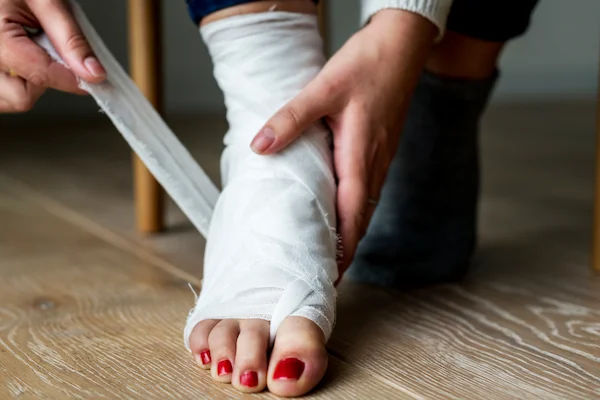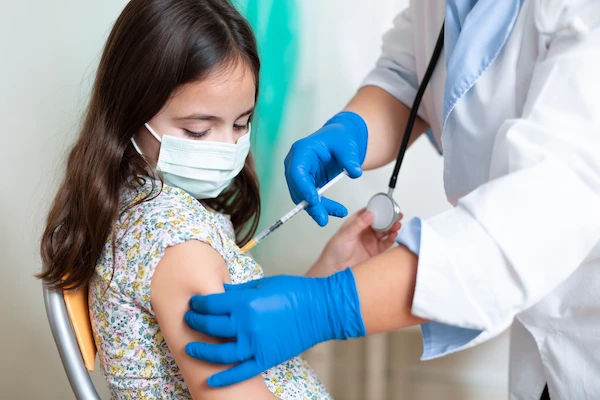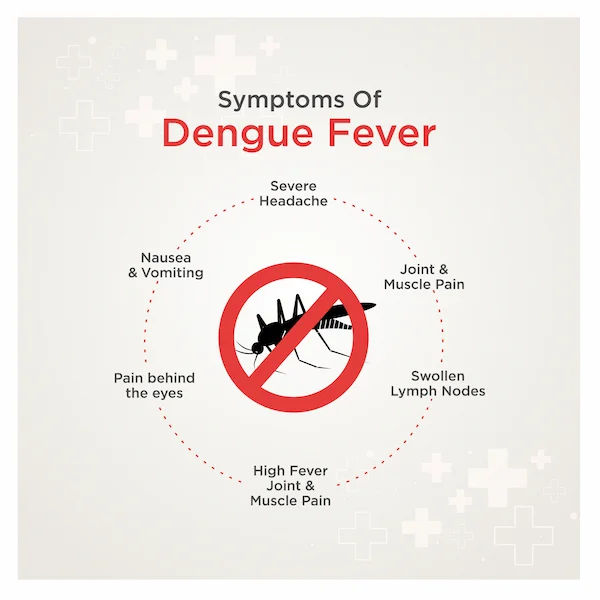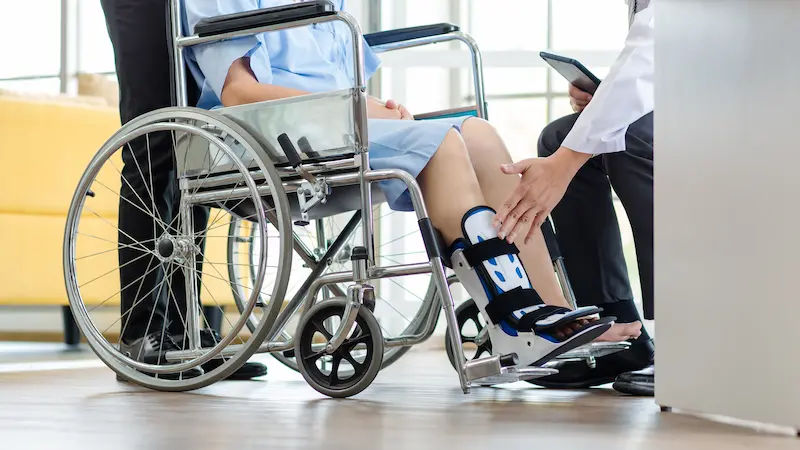Guide to Risks Of Delaying Vaccinations During Pandemic
Discover the potential health and societal risks of delaying vaccinations during a pandemic. Learn why timely immunization is essential to prevent outbreaks and protect vulnerable populations.

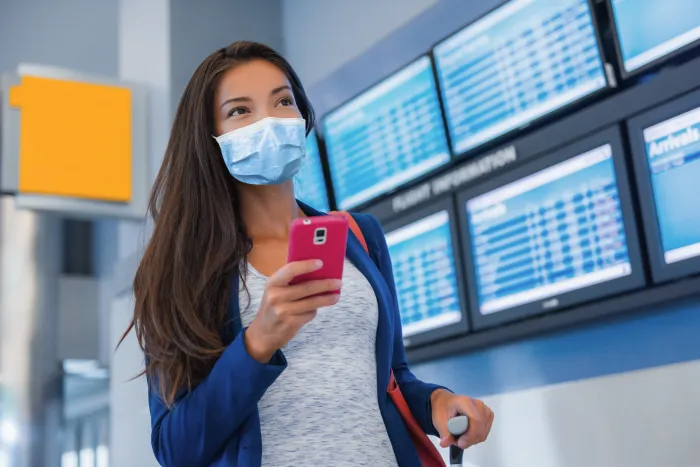
Introduction
The COVID-19 pandemic reshaped our lives, introducing new fears and disrupting even the most essential healthcare routines. For many, the fear of exposure led to a difficult decision: postponing routine medical appointments, including vital vaccinations. While understandable, this delay has created a silent public health crisis lurking beneath the surface of the pandemic. This article delves into the significant risks of delaying vaccinations during and after a pandemic. We will explore not only the direct threat to individual health but also the broader danger to community immunity, potentially allowing once-controlled diseases to resurge. We'll address common safety concerns about visiting healthcare facilities and provide a clear, actionable plan for getting back on track with your vaccinations. Understanding these risks is the first step toward rebuilding our collective defenses and ensuring that a victory over one virus isn't undone by the return of others.
Why Vaccinations Remain Non-Negotiable, Pandemic or Not?
A pandemic can make the threat of other diseases seem distant, but viruses like measles, influenza, and whooping cough don't take a break. Vaccinations are a cornerstone of preventive medicine, and their importance is magnified, not diminished, during a global health crisis. Delaying them shifts the focus from prevention to potential outbreak management, straining healthcare systems already under immense pressure.
The concept is simple: when a population is well-vaccinated, it acts as a firebreak, slowing or stopping the spread of disease. When vaccination rates drop, these firebreaks weaken, creating tinder for outbreaks. The risks of delaying vaccinations extend beyond the individual; they represent a gamble with community health. For example, a 2020 study published in The Lancet projected that disruptions to measles vaccination campaigns could lead to tens of thousands of additional deaths from the disease, highlighting how a pause in one area can have devastating ripple effects.
How Vaccines Work?: A Quick Refresher
Vaccines train your immune system to recognize and fight specific pathogens without you having to get sick first. They introduce a harmless piece of the germ (like a protein or a weakened virus) that prompts your body to produce antibodies. If you're later exposed to the real virus, your immune system is ready to attack it immediately, often preventing illness entirely or making it much less severe. This proactive defense is what makes following a catch-up immunization schedule so critical after a delay.
The Double Threat: Pandemic Virus + Resurgent Diseases
Imagine a healthcare system dealing with a surge of COVID-19 patients suddenly facing a simultaneous outbreak of measles or flu. This "double threat" scenario is a primary concern for public health experts. Co-infections (catching two diseases at once) can also lead to more severe illness. Staying up-to-date on routine vaccinations is a key strategy to prevent this nightmare scenario, ensuring that hospitals can focus on the pandemic threat without being overwhelmed by other preventable diseases.
Consult an General Physician
The Direct Risks of Putting Off Vaccinations
The decision to delay a vaccine is often made out of short-term caution, but the consequences can be long-term and severe. The protection offered by vaccines is time-sensitive, especially in early childhood and for certain adult boosters.
For Children: A Vulnerability That Can't Wait
Childhood vaccination schedules are scientifically designed to protect children when they are most vulnerable to serious complications. Diseases like measles, mumps, rubella, and whooping cough can be life-threatening for infants and young children. A delay, even of a few months, opens a critical window of vulnerability. For instance, measles is so contagious that if one person has it, up to 90% of the people close to them who are not immune will also become infected. The consequences of a delayed MMR vaccine can be severe, including pneumonia and encephalitis (brain swelling).
The Critical Importance of the Childhood Immunization Schedule
The schedule isn't arbitrary. It's meticulously planned to build immunity in a specific sequence, often requiring multiple doses spaced at precise intervals to be fully effective. Disrupting this sequence can mean a child is not fully protected, and some vaccines may need to be restarted if the delay is too long. If you've missed well-child visits, consulting a pediatrician to create a personalized catch-up immunization schedule is essential. If you're unsure about your child's vaccine status, you can consult a pediatrician online with Apollo24|7 for guidance.
For Adults: Compromising Long-Term Health
It’s not just children. Adults need protection too. Immunity from some childhood vaccines can wane over time, requiring boosters like Tdap (tetanus, diphtheria, pertussis). Furthermore, vaccines for conditions like shingles (Zoster) and pneumonia are specifically recommended for older adults or those with certain chronic health conditions, who are at higher risk for severe complications. Delaying the shingles vaccine, for example, leaves one vulnerable to a painful and debilitating condition that could have been prevented.
The Consequences of Missing Boosters
are essential "reminder" shots for your immune system. Without them, your antibody levels can drop, leaving you susceptible to diseases you were once protected against. Whooping cough (pertussis) in adults may be a severe, lingering illness, but the real danger is transmitting it to an infant who is too young to be fully vaccinated, for whom it can be fatal. Staying up-to-date on adult vaccination catch-up is a key part of responsible personal and family health.
The Community-Wide Impact: Eroding Herd Immunity
Vaccination is not just a personal choice; it's a social contract. Herd immunity (or community immunity) protects those who cannot be vaccinated, including newborns, individuals with certain allergies, or those with compromised immune systems (e.g., from cancer treatment).
What Herd Immunity Really Means?
Herd immunity occurs when a high percentage of the community is immune to a disease, making its spread from person to person unlikely. This provides indirect protection to the unvaccinated. However, this shield only works if vaccination rates remain high. Each delayed or missed vaccination lowers the community's overall immunity, chipping away at this vital protective barrier.
We don't have to look far for evidence. The 2019 measles outbreak in the United States, which was the worst in decades, was directly linked to pockets of unvaccinated children. More recently, countries that experienced disruptions in their immunization services during the COVID-19 pandemic are now reporting surges in measles cases. These real-world examples serve as a stark warning of what happens when vaccination rates fall below the herd immunity threshold.
Addressing the Fear: Are Healthcare Settings Safe?
This is the core of the issue for many. The fear of exposure at a clinic is real, but healthcare providers have adapted rigorously to mitigate these risks.
The Protocols in Place to Protect You
Clinics and hospitals have implemented stringent safety measures far exceeding those in most public spaces. These typically include:
Mandatory masking for all staff and patients.
Pre-appointment screening for symptoms.
Strict physical distancing in waiting areas (often with spaced-out appointments).
Enhanced cleaning and disinfection protocols.
Separate well-visit and sick-visit hours or areas.
Alternative Options: Drive-Thru and Mobile Clinics
Many health departments and providers have created innovative solutions to minimize contact. Drive-thru vaccination clinics became popular during the COVID-19 rollout and continue for flu shots and other vaccines. Pharmacies also offer convenient and often less-crowded alternatives to traditional doctor's offices. Checking for these options can provide a sense of security for those hesitant about indoor settings.
Creating a Safe Catch-Up Plan for Missed Vaccinations
If you or your family have fallen behind, don't panic. The most important step is to create a plan to get back on track safely and efficiently.
Step 1: Reviewing Your Immunization Records
Start by locating your or your child's vaccination record (often a yellow booklet). If you can't find it, contact your previous healthcare provider or your state's immunization information system (IIS). Apollo24|7 offers convenient home collection for tests like antibody titers, which can help determine immunity to certain diseases if records are lost.
Step 2: Consulting with a Healthcare Provider
This is the most crucial step. Schedule an appointment with your doctor to review your records. They can tell you exactly which vaccines are needed and create a personalized schedule. They can also address any specific concerns you have about vaccine safety or timing.
Step 3: Prioritizing the Most Critical Vaccines First
Your doctor will help you prioritize. Typically, vaccines for highly contagious and dangerous diseases like measles (MMR) will be top priority, especially for children. The goal is to close the immunity gaps as quickly and safely as possible.
Conclusion
The pandemic taught us the profound value of prevention. As we move forward, it's vital that we apply this lesson to all aspects of our health, especially vaccinations. Delaying them creates a dangerous domino effect, compromising individual immunity and eroding the community-wide protection that keeps deadly diseases at bay. The risks of delaying vaccinations are clear and present. However, the path to catching up is straightforward and safe. By taking proactive steps to review your records, consult with a trusted healthcare provider, and utilize the safe options available, you can restore your family's protection. Let's use the hard-earned lessons of the recent past to build a healthier, more resilient future. Protect your health today to prevent an outbreak tomorrow.
Consult an General Physician
Consult an General Physician

Dr. Rajib Ghose
General Physician/ Internal Medicine Specialist
25 Years • MBBS
East Midnapore
VIVEKANANDA SEBA SADAN, East Midnapore
Dr. Venkatesh Billakanti
General Physician/ Internal Medicine Specialist
15 Years • M.D ( GENERAL MEDICINE), M.V.J MEDICAL COLLEGE – HOSKOTE, BANGALORE,KARNATAKA ,M.B.B.S – MEDICITY INST OF EDICAL SCIENCES – T.G , F.I.C.M – CRITICAL CARE – APOLLO JUBLI HILLS ,CCMBE – ONLINE COURSE ON ANTIBIOTIC STEWRDSHIP
Hyderabad
Apollo Hospitals Financial District, Hyderabad

Dr. Aman Kumar
General Physician/ Internal Medicine Specialist
29 Years • MBBS, MD
Chennai
Apollo Hospitals Greams Road, Chennai
(100+ Patients)

Dr. B Sivananda Reddy
General Physician
12 Years • D M ( OSMANIA MEDICAL COLLEGE, KNRUHS ) MD ( KASTURBA MEDICAL COLLEGE , MAHE) MBBS ( PESIMS&R, NTRUHS).
Secunderabad
Apollo Hospitals Secunderabad, Secunderabad
Dr Rakesh Ram
General Physician/ Internal Medicine Specialist
4 Years • MBBS, MD (INTRNAL MEDICINE)
Secunderabad
Apollo Hospitals Secunderabad, Secunderabad
More articles from Preventive Treatment
Frequently Asked Questions
1. Is it safe to get multiple catch-up vaccines at once?
Yes, it is generally safe. Doctors follow scientifically tested schedules that allow for multiple vaccines to be administered simultaneously. This is actually the preferred approach for catch-up schedules, as it provides protection faster without overburdening the immune system.
2. How long is too long to delay a vaccination?
There is no universal 'too long.' The key is to get back on schedule as soon as possible. Even if a significant amount of time has passed, you do not need to start the entire series over for most vaccines. Your doctor will determine the best way to resume protection.
3. What if I can't find my vaccination records?
Don't worry. You can contact your previous doctor's office or your state's health department to try to obtain them. If records are truly lost, your doctor can often perform blood tests (titers) to check for immunity or simply recommend restarting or getting the vaccines you likely missed based on your age and health history.
4. Are the side effects of catch-up vaccines worse?
No, receiving several vaccines at once does not make side effects more severe. The most common side effects, like a low-grade fever or soreness at the injection site, are similar to when vaccines are given on the standard schedule. Your body is well-equipped to handle multiple vaccines.
5. My child is older now. Do they still need the vaccines they missed as a baby?
Absolutely. The diseases these vaccines prevent can affect people at any age, and sometimes complications are more severe in older individuals. It is never too late to get the protection they need.
